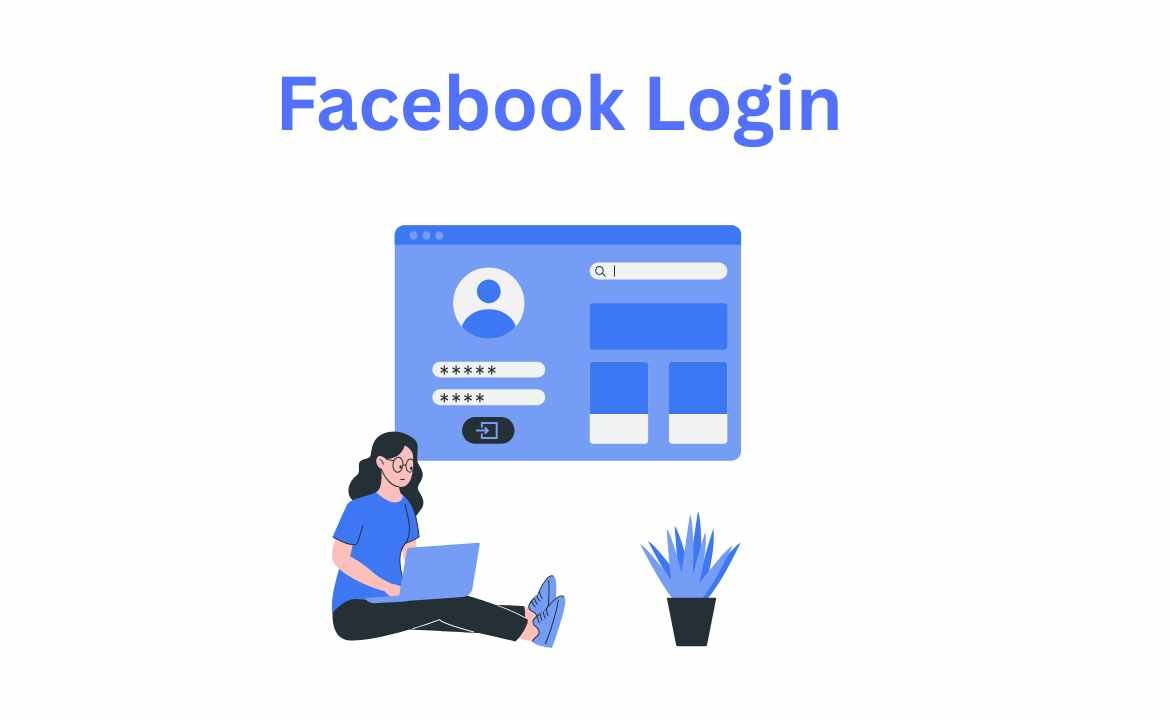In today’s digital age, Facebook login has become an essential gateway to accessing not only the Facebook platform itself but also a wide range of other apps and websites. With over 2 billion active users, Facebook has created a seamless way to sign in to third-party platforms using your Facebook credentials. This method simplifies access and reduces the need to remember multiple passwords.
However, many users still wonder how Facebook login works, whether it’s safe, and what benefits it provides. In this article, we’ll cover all the essential aspects of Facebook login, how it functions, and what users should keep in mind for security and convenience.
How Facebook Login Works
Facebook login is a system that allows users to log into apps, websites, and services using their Facebook account. When you choose the “Continue with Facebook” option, you authorize the third-party platform to use your Facebook information to authenticate your identity.
This process works through OAuth, a secure authorization protocol that enables limited access to user data. Instead of creating a new username and password for every service, Facebook login allows for faster and more convenient access. It also enables you to manage what data is shared with the service at the time of login.
Benefits of Using Facebook Login
Using Facebook login comes with several advantages, both for users and developers.
For Users
- Convenience: One-click login eliminates the need to remember separate credentials.
- Speed: Accessing platforms with Facebook is faster than traditional registration.
- Personalization: Many apps customize your experience using your Facebook profile.
For Developers
- Improved User Onboarding: Developers can streamline sign-ups and logins.
- Rich Data Access: With permission, they can access user information to tailor the service.
- Increased Engagement: Users tend to return more frequently when login is easy.
Despite the benefits, it’s important to use Facebook login responsibly and understand what information is being shared.
Security Considerations
Although Facebook login is widely used, users should always consider the security aspects of using it. Facebook uses advanced security protocols, including two-factor authentication and encrypted sessions, but the overall safety also depends on how you manage your account.
Best Practices for Safe Login
- Enable Two-Factor Authentication: Adds an extra layer of security.
- Review App Permissions: Before confirming the login, check what data you’re sharing.
- Logout from Shared Devices: Always log out from public or shared devices.
- Monitor Login Activity: Facebook provides a log of devices and locations where your account is accessed.
Being cautious and proactive helps ensure that your Facebook login remains secure and private.
Privacy and Data Sharing
One of the main concerns among users is privacy. When logging into third-party apps via Facebook, users may be prompted to share profile data, email addresses, and friend lists. You always have the option to edit these permissions during the login process.
Facebook login offers transparency and control over what information is shared. Most reputable apps will only request basic profile info, but users should still pay attention to every detail before proceeding. You can also visit your Facebook settings to revoke permissions from any app you no longer use.
Managing Your Facebook Login Settings
To manage your login settings, go to your Facebook account and navigate to Settings & Privacy > Apps and Websites. There, you’ll find a list of all the apps connected to your account. You can:
- View permissions
- Remove apps
- Update what information is shared
This feature helps you stay in control of your data and ensure that only trusted apps are linked to your profile.
Facebook Login on Mobile Devices
Most mobile apps now integrate Facebook login for a faster user experience. When logging into an app on your smartphone, the process is often streamlined through the Facebook app already installed on your device. This eliminates the need to enter your login details manually.
However, always make sure the app is legitimate. Fake or malicious apps can mimic Facebook login screens to steal your credentials. Verifying the app’s authenticity before allowing Facebook access is crucial for mobile security.
Troubleshooting Common Issues
Sometimes, users may encounter problems when using Facebook login. Some common issues include:
- Login Failure: This can happen due to incorrect credentials or internet issues.
- App Not Responding: Sometimes third-party apps might fail to redirect properly.
- Permission Errors: If the required permissions are not granted, login might not proceed.
How to Fix Them
- Clear your browser or app cache.
- Ensure your Facebook app is updated.
- Check if the app or website is currently down.
- Reconnect your Facebook account in settings.
These small steps usually resolve the most common login problems without much hassle.
The Future of Facebook Login
As digital services continue to evolve, so does Facebook login. Meta, Facebook’s parent company, is exploring even more secure and convenient login options, including biometric verification and AI-driven access control. This means we can expect smarter login experiences that prioritize both ease and security.
Moreover, integration with the Meta ecosystem (including Instagram and WhatsApp) means users might soon enjoy a unified login experience across multiple platforms, simplifying digital access even further.
Conclusion
Facebook login has transformed the way users access digital content and services. It offers a balance between ease of use and robust security—provided users remain aware of their privacy settings and login activity. Whether you are using it for gaming, productivity apps, or social platforms, Facebook login simplifies access while keeping your data secure when used correctly.
